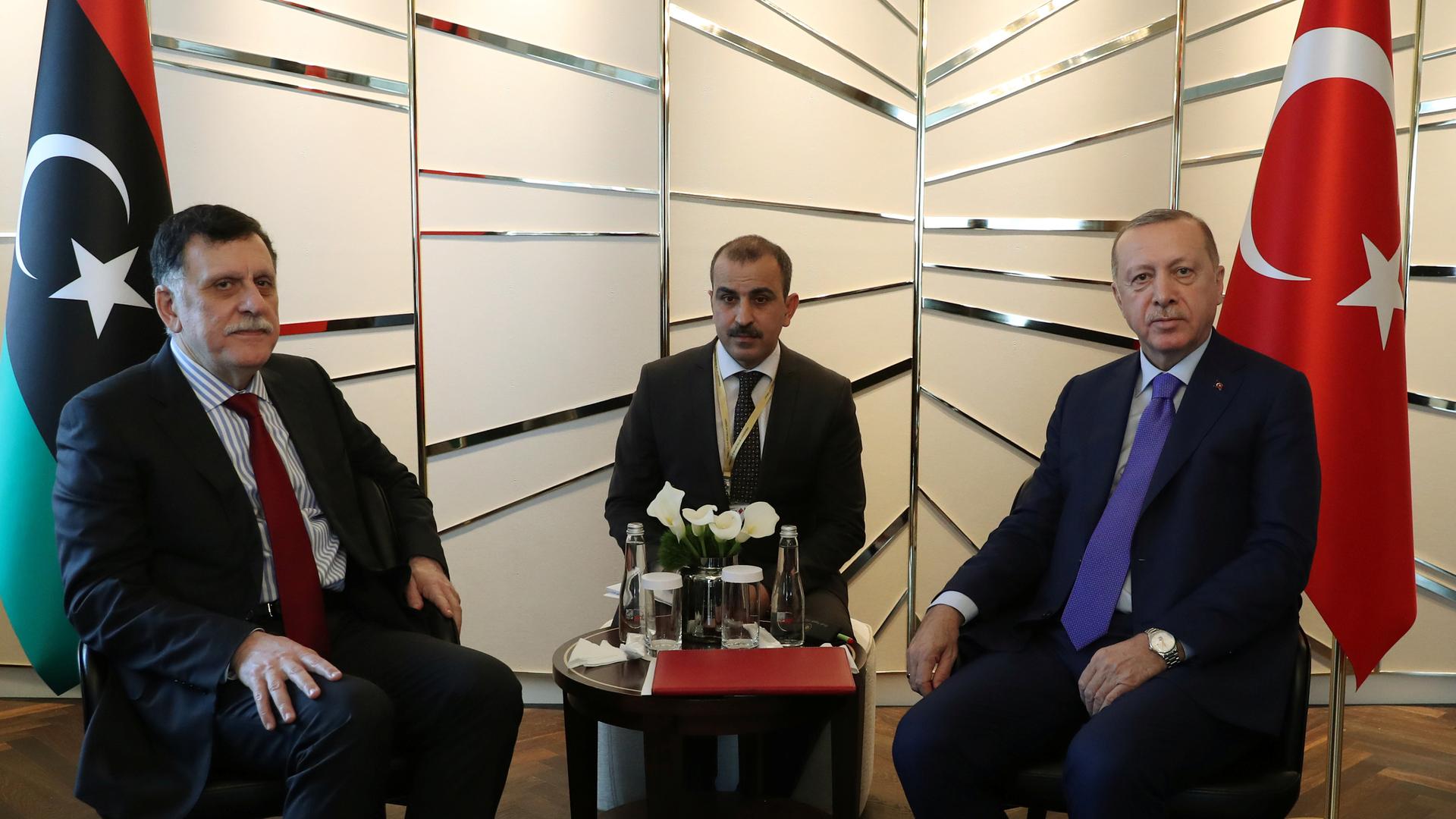Turkey will continue supporting the political process in Libya both on the ground and at the negotiating table, said President Recep Tayyip Erdogan on Monday.
Speaking to reporters travelling with him on the plane following the conference in Berlin, Erdogan said that Turkey’s efforts regarding Libya have brought balance to the process.
Erdogan said Turkey’s presence in Libya raises hopes for peace.
He underlined that compliance with a ceasefire in Libya brokered by Russia and Turkey will pave the way for a political solution.
“We see what kind of games are being played under the guise of fighting terrorism [in Libya],” he added.
Turkey opposed the EU’s offer to be part of Libya process as a coordinator, Erdogan noted.
Touching on the peacebuilding process in northern Syria, he said, “If we realise our own plans and projects in the region between Ras al Ayn and Tal Abyad, these areas will become cities of peace.”
Since the ouster of late ruler Muammar Gaddafi in 2011, two seats of power have emerged in Libya: warlord Khalifa Haftar in eastern Libya, supported mainly by Egypt and the UAE; and the Government of National Accord (GNA) in Tripoli, which enjoys the UN and international recognition.
Libya’s legitimate government had been under attack by Haftar since last April, claiming the lives of more than 1,000 people.
On January 12, the conflict parties announced a ceasefire in response to a joint call by the Turkish and Russian leaders. But talks last week for a permanent ceasefire deal ended without an agreement after Haftar left Moscow without signing the deal.
On Sunday, Haftar accepted in Berlin to designate members to a UN-proposed military commission with five members from each side to monitor implementation of the ceasefire.
Sarraj warns of catastrophe
Libya will face a “catastrophic situation” unless foreign powers put pressure on warlord Haftar to lift a blockade of oilfields that has cut output to almost zero, the country’s internationally recognised premier said on Monday.
Since Friday, Haftar’s militants have closed Libya’s major oil ports in a power play as European and Arab powers and the United States were meeting with his supporters in Berlin to push him to halt a campaign to capture the capital Tripoli.
Tripoli-based Prime Minister Fayez al Sarraj told Reuters he rejects Haftar’s demands to link a reopening of oil ports to a new distribution of oil revenues among Libyans, saying such income was in any case meant to benefit the entire country.
“The situation will be catastrophic should it stay like this,” Serraj said in an interview in Berlin.
“I hope foreign countries will follow the issue,” he said when asked whether he wanted them to lean on Haftar to lift the blockade of Libya’s Mediterranean oil export terminals.
Sarraj also said his government would respect the summit’s decision to turn a tentative ceasefire into a permanent truce in Tripoli and open intra-Libyan talks to end conflict as part of a UN-led plan.
But he ruled out meeting Haftar again. In Berlin Serraj and Haftar conferred with world leaders but did not meet each other.
“For me it’s clear … We will not sit down again with the other side,” Sarraj said, adding that the question of peacemaking should not be limited to a meeting of two leaders.










Discussion about this post